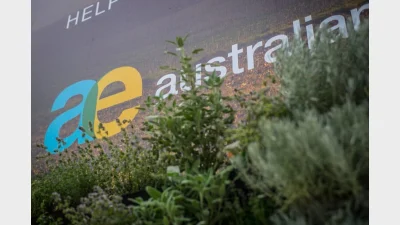When time is money
A superannuation fund’s delay in processing a member’s rollover request at the height of the global financial crisis in mid-2008 ended up costing him more than $4,000 on a rollover amount of less than $24,000, according to evidence given to the Superannuation Complaints Tribunal (SCT).
The evidence given to the tribunal revealed that the member’s application to undertake a rollover had ended up taking almost 12 months due to a combination of miscommunication, incomplete documentation, missing emails and, eventually, disputation before the tribunal itself.
In the end, despite the SCT acknowledging that the errors and delays had cost the member more than $4,000 on a rollover balance of just under $24,000, the tribunal affirmed the decisions and actions taken by the fund trustee.
However, in doing so, the tribunal acknowledged that events with respect to the Rollover request had started on 18 July, 2008, and not been concluded until 2 June the following year.
In affirming the decision of the fund trustee, the SCT also acknowledged the fact that a letter sent from the rollover fund to the member’s existing fund had taken more than a fortnight to be received. The tribunal also acknowledged the fund’s claim that it had lost an email sent from the member’s employer — something that generated a further delay of almost three weeks.
In the explanation of its decision, the tribunal said it accepted “that the complainant set in motion on 4 July 2008 the steps necessary to transfer benefits held with the fund to the rollover fund. The forms were correctly sent to the rollover fund from which the necessary rollover request was to come to the fund. It seems clear that the request from the rollover fund, together with the requisite forms, was sent by letter dated 18 July 2008.”
However, it said the fund trustee had then stated that the letter was received by the fund on 4 August, 2008.
“This reflects a gap of 17 days between the date of the letter and the date of its receipt,” the SCT said. “Nevertheless, there is no evidence on which the tribunal can reasonably conclude that the letter was received by the trustee prior to 4 August.”
Dealing with the missing email from the person’s employer and the consequent delays which then occurred, the SCT said: “The employer’s email of 22 August 2008 appears to be correctly addressed and it is unusual, although perhaps not unheard of, for an email to ‘go missing’ in these circumstances. Nevertheless, the tribunal is not in a position to question the trustee’s statement that the email was not received on 22 August and first brought to its attention only on 10 September.”
In explaining its final determination, the SCT said the complainant might have succeeded in minimising the loss he incurred if he provided the information requested by the fund after he had filed his complaint with the SCT.
“Whilst the stance taken by the complainant in relation to the trustee’s request for information and benefit calculation proposal can be understood on one level, it was nevertheless incumbent upon the complainant to limit any loss he might have suffered as a result of the trustee’s actions,” the SCT said. “Compliance with the trustee’s 11 September 2008 request would have resulted in his benefit being calculated at the unit price applicable on a date prior to 11 October 2008.”
Acceptance of the subsequent proposal contained in the trustee’s 29 October, 2008, letter, and provision of the requested information, would have ensured calculation of the benefit at the 22 September, 2008, unit price of 1.9996, valuing his benefit at $23,345.75.
Recommended for you
“Slow and steady” appears to be the Reserve Bank’s approach to monetary policy as the board continues to hold on to its wait-and-see method.
AFCA’s latest data has shown a decline in complaints relating to superannuation, but there is further work to be done, it has warned super funds.
Limited exposure to fossil fuel companies has positively impacted the performance of Australian Ethical’s balanced and growth funds, the super fund says.
The major bank has announced that real-time super payments will soon be available to all QuickSuper employers ahead of the looming payday super regime.











